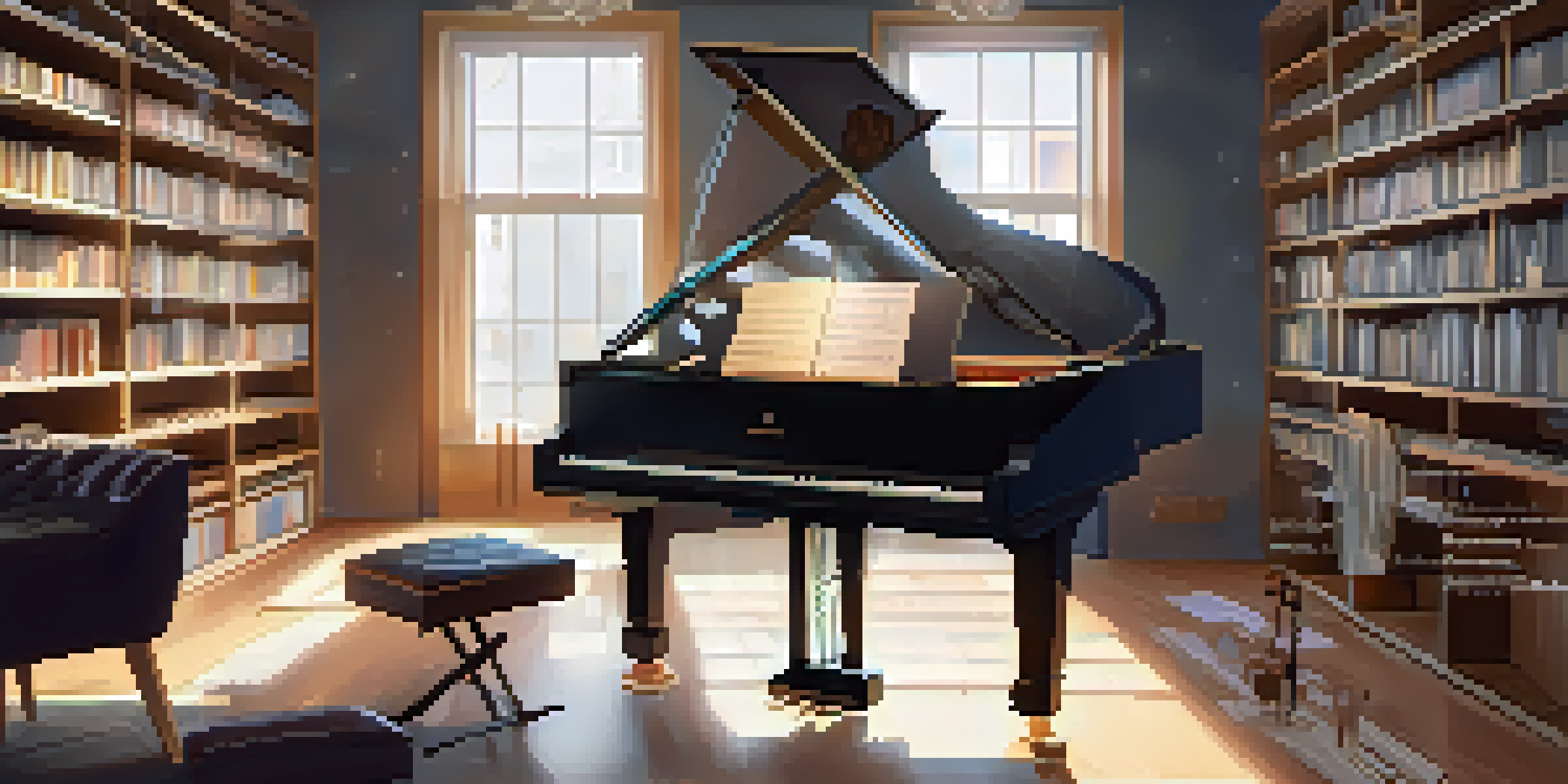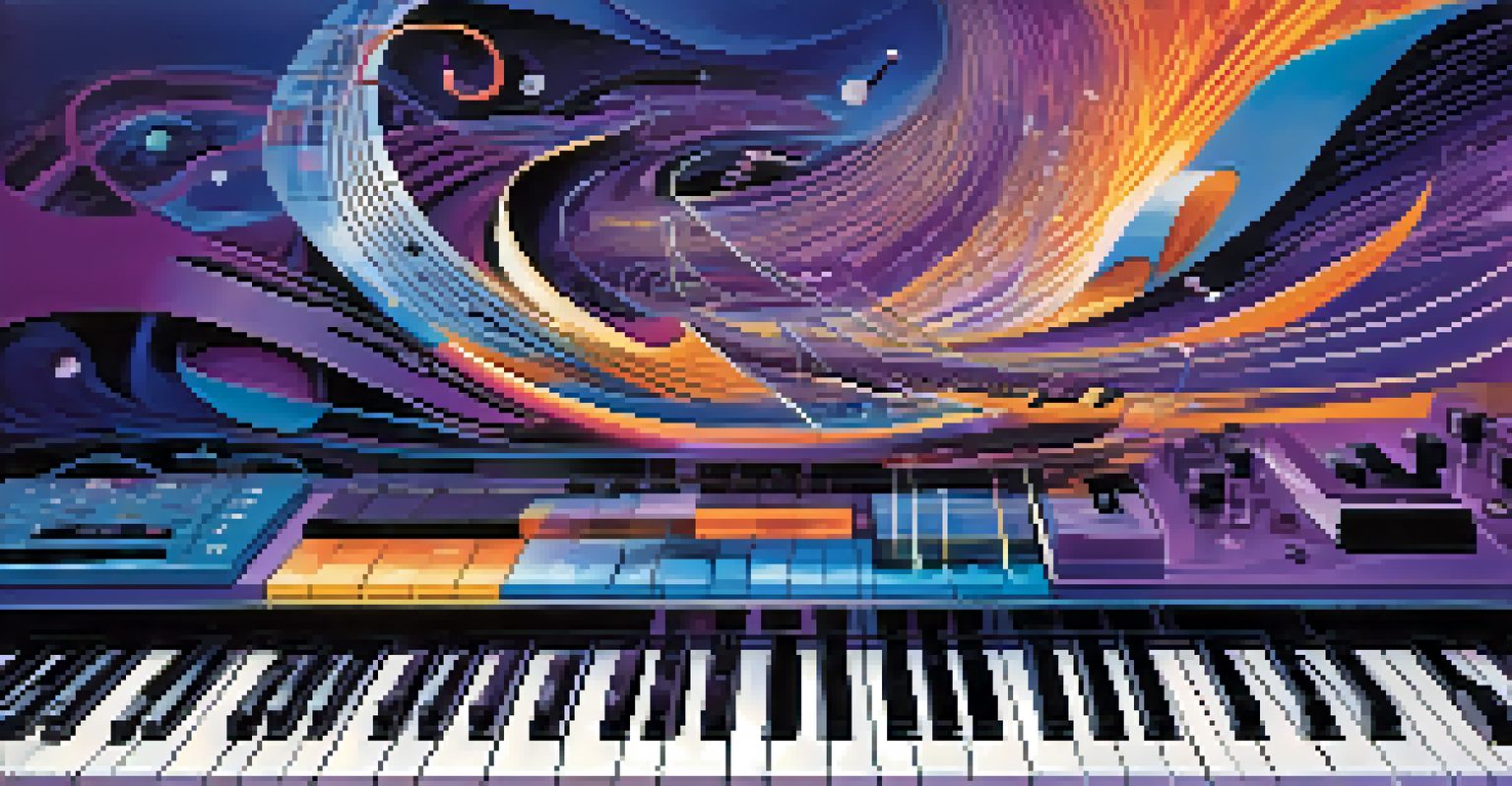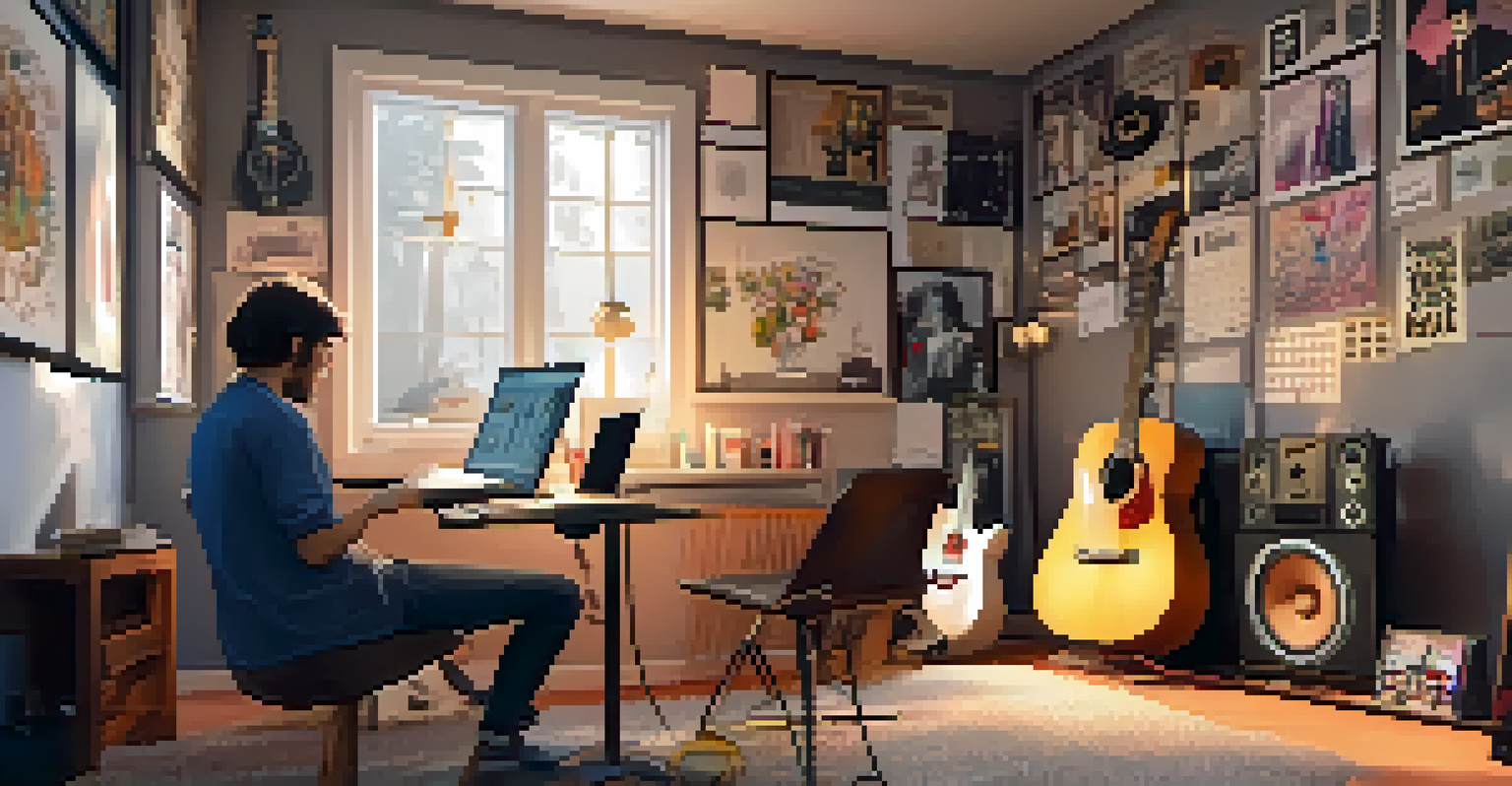AI-Enhanced Music Composition: A New Tool for Artists

Understanding AI's Role in Music Composition
Artificial Intelligence, or AI, is making waves in many fields, and music composition is no exception. By leveraging complex algorithms, AI can analyze existing songs to understand patterns that resonate with listeners. This understanding allows it to generate new compositions, providing artists with fresh ideas and inspiration.
Music is the shorthand of emotion.
Imagine having a virtual collaborator that can suggest melodies, harmonies, or even entire arrangements based on your style. This is what AI tools bring to the table, giving artists the chance to explore uncharted musical territories. For instance, platforms like AIVA and Amper Music are already helping musicians create unique tracks effortlessly.
However, the role of AI isn't to replace human creativity but to enhance it. Artists can use these tools to spark their imagination, allowing them to craft music that is both innovative and personal. The collaboration between human and machine opens up exciting possibilities for the future of music.
How AI Tools Assist Musicians
AI tools provide a range of features that can assist musicians at various stages of the creative process. From generating chord progressions to suggesting lyrics, these tools can become invaluable companions in the studio. They can even analyze a musician's previous work to ensure that new compositions align with their unique sound.

For example, software like IBM Watson Beat can analyze emotional data in music, helping artists create pieces that evoke specific feelings. This approach allows musicians to tailor their work more closely to their audience's emotional response, making the music more impactful. Imagine writing a song that perfectly captures the mood you want to convey, all with the help of AI.
AI Enhances Musical Creativity
AI tools serve as virtual collaborators, providing musicians with new ideas and inspiration for their compositions.
Moreover, these tools often come with user-friendly interfaces, making them accessible even to those who may not have extensive technical knowledge. This democratization of music composition means that anyone with a passion for creating can jump in, experiment, and develop their skills.
The Benefits of AI in Creative Collaboration
One of the most exciting aspects of AI-enhanced music composition is the potential for collaboration. Musicians can use AI-generated suggestions as a starting point, building on ideas that they might not have considered otherwise. This collaboration can lead to innovative soundscapes and styles that push the boundaries of traditional music.
The best way to predict the future is to create it.
Think of it as a brainstorming session with an incredibly knowledgeable partner who never runs out of ideas. By incorporating AI into their workflow, artists can explore alternative arrangements, tempos, and genres, expanding their creative horizons. This kind of partnership not only enhances the music but also keeps the creative process fresh and engaging.
Artists are already reporting increased productivity and inspiration when working alongside AI tools. As these technologies continue to evolve, the collaboration between human musicians and AI is likely to become even more seamless and intuitive.
AI's Impact on Music Genres and Styles
AI is not just a tool for individual songwriters; it's also influencing entire music genres and styles. By analyzing vast amounts of data from different genres, AI can identify trends and characteristics that define what makes a particular style resonate. This understanding allows artists to experiment with blending genres in ways that might not have been feasible before.
For instance, imagine a hip-hop artist collaborating with an AI that draws inspiration from classical music. The result could be a unique fusion that redefines what listeners expect from both genres. Such innovations can breathe new life into established styles and encourage artists to push their creative limits.
AI's Collaborative Potential
By integrating AI into their creative process, artists can explore innovative soundscapes and push their musical boundaries.
Moreover, AI can help in preserving traditional music forms by analyzing and recreating music styles that may be at risk of fading away. This not only honors the past but also provides contemporary artists with a treasure trove of inspiration.
Challenges and Considerations in AI Music Composition
While the benefits of AI in music composition are promising, several challenges and considerations accompany this new tool. One key concern is the balance between human creativity and machine-generated content. Artists may worry that relying too heavily on AI could dilute their unique voice and authenticity.
Additionally, the question of copyright and ownership arises when it comes to AI-generated music. If an AI creates a song, who owns the rights—the artist who used the tool or the developers of the AI? These legal and ethical implications are still being navigated as the technology advances.
Despite these challenges, many artists find that using AI tools enhances their creative process rather than stifling it. By approaching these tools as collaborators rather than replacements, musicians can maintain their individuality while reaping the benefits of AI.
The Future of AI in Music Composition
As technology continues to evolve, the future of AI in music composition looks bright. We can expect to see even more sophisticated AI tools that can understand and mimic the emotional nuances of human creativity. These advancements could lead to a new era of music where AI and artists work hand-in-hand to create masterpieces.
Imagine a world where live performances are enhanced with real-time AI compositions, adapting to the energy of the crowd. This could create a dynamic and immersive experience for listeners, making each performance unique. The possibilities are truly endless as we explore the intersection of technology and artistry.
Navigating AI's Challenges
Artists must balance the use of AI with their unique voice while considering copyright and ownership issues related to AI-generated music.
Ultimately, the future of music composition is one of collaboration and innovation. As artists embrace AI, they will likely discover new ways to express themselves and connect with their audiences, enriching the music landscape for generations to come.
Getting Started with AI Music Composition Tools
If you're an artist interested in exploring AI-enhanced music composition, getting started is easier than you might think. There are several accessible tools available that cater to different skill levels and musical styles. Platforms like Soundtrap and Jukedeck offer user-friendly interfaces that allow you to dive in without a steep learning curve.
As you experiment with these tools, don't hesitate to mix and match your own creativity with AI suggestions. The key is to use AI as a springboard for your ideas rather than a crutch. Keep your artistic vision at the forefront and allow the technology to enhance it.

Lastly, stay curious and open-minded. The landscape of AI in music is constantly changing, and being willing to learn and adapt will help you make the most of these exciting tools. Who knows what musical innovations await you on this journey?